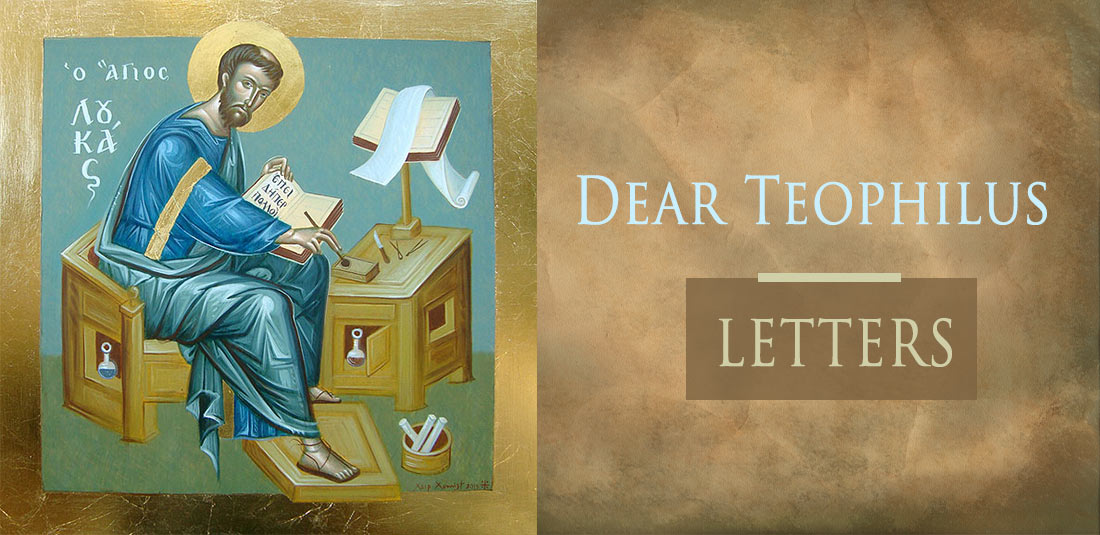Dear Theophilus , (Letter 74. )
You challenge some of the comments I made in the last letter and accuse me of being insensitive and narrow minded with respect to other beliefs. And you come back with your usual rejoinder – where are the results of the so-called changes that Christ’s coming have brought about.
In defence of my position, I have stated before and will reiterate it now, that I think that Christianity and the religions of the world are two very different categories of teachings. Allow me to discuss this more fully by looking at the central problem in all religions, and in fact, the central question in the history of mankind.
The question that I am referring to is death and how should man react to death and what he is to make of it. Do humans survive death? And if so, how? There is no scientific evidence either for post grave survival or against it. So, we have to use other tools to see what they tell us, or try to teach us, about death.
Those who do not believe in life after death bring forward their arguments – no one has come back, there is no verifiable evidence, death is a final and natural occurrence within nature. This whole universe is just one cosmic cemetery and nothing else. We had better face up to this jarring reality and get on with living the best that we can. This world is all that there is and there is nothing more.
There are those who oppose this view and claim that there is a life beyond the grave but it is a life very different from the one that we experience here. One of the most powerful and enduring proponents of this form of survival was Plato for whom there is an immortal component of each human being – the soul. For Plato, the whole essence of life is just one eternal dying as a passage to another, permanent unchanging world. His argument seems very plausible. The world is overflowing with suffering, change, tragedy and all this suggests that there must be another world where life is eternal and changeless.
So this brings us to the following. There are those who see no meaning in this world and sense no transcendence or anything beyond the material reality of this world. And there are those who see this world as corrupted and as a lost cause and the only way to deal with this is to escape from it into a world of spirit, away from this corrupted and corrupting materiality. There, we have a summary of the two positions on the world and the significance of death in each of them. But what does Christianity say about each of these views?
It is not surprising to say that Christianity condemns both of these views and what is it that Christianity does say? Christianity unequivocally calls death an enemy, in fact the last enemy to be destroyed. It is instructive to see how Christ reacts to death. When standing outside Lazarus’ grave he does not say that Lazarus has gone to better things, that he is now in a better place away from suffering and persecution and illness. He weeps and then he acts – he resurrects Lazarus back to the world, back to God’s creation. In this, Christ already gives a hint as to what he will accomplish. Through his Resurrection, he will ‘trample down death by death’. He will defeat the last enemy in his battle over the fate of humanity.
For many centuries, our faith has proclaimed victory over death but with time, with the challenge of – what has really changed – it has slowly slid back into a Platonic version of death in that on dying Christians go to a better place and therefore death is in essence a good thing. The world declared our belief in Resurrection foolish and naïve and we have aquiesced to this view.
Remember that in the Gospels Christ never talks about the immortality of the soul – he talks about the resurrection which is the fate of all of us. If one talks about the immortality of souls then the immediate question arises – what is the point of material creation? It seems, under this view that if the most important component of us is the soul, then material creation becomes just an encumbrance that one is eager to get rid of.
But in talking about death, one is faced with a follow-up question. What is death and where does it come from? How did death become so ubiquitous and why has it mastered life so completely? The corollary is that if death has not been overcome, then our faith is in vain. Christ’s Incarnation had as a main goal not a juridical function of only freeing us from sin – it did do that – but it went further than that by addressing the tormenting question of mortality and how it was to be overcome. We have become so entranced with judgement and sin that we have lost sight of the wider picture which does include forgiveness of sins, but it does not just stop at that, but talks about the conquest of death.
The main purpose of religions in the world was to somehow make humanity come to terms with death going so far as to say that death was good in that it offered a doorway into eternity. This is such an attractive and graspable view that its hold is still strong in our thinking. But our faith states clearly that death is not natural, it is an intruder and corrupter and God has nothing to do with it. God did not make death, and he does not delight in the death of the living says the book of Wisdom.
Throughout creation there is a power opposed to God because God is in fact the author of Life. Death is an interloper and should have no place in God’s creation. God delights in his creation because creation is the means of communion between God and man. Death is the denial of God and if we see in death the ultimate fate and meaning of our lives, then we have become atheists – we have become people for whom God does not exist. So the question arises again – how did this creation become a cosmic cemetery?
St. Paul, in the Epistle to Romans, writes that through sin death has come into the world. There is a moral component to death, sin brings on the catastrophe that we are living through in our mortality. In order to understand this a little better, we need to consider what we mean by life and what we mean by sin. We have some nebulous concept that life is a series of biochemical processes that result in certain functions being carried out by us such as respiration, digestion, healing, etc., but there is a more fundamental basis for what we call life.
Man came to believe the lie that he can exist independent of God , that he was the master of his own fate but this is an untruth. Man knows that he does not contain life but he looked for life in the wrong places, in the world around him.
Life is interdependence because without the world around us we would not live. We do not have life within us but we need to take in materials from the outside such as food, water and air in order that we may survive. Without this interaction, we perish. And here, we touch on one of the fundamental teachings of our faith – original sin.
We have turned away from our interaction with God and focused on our material interactions and through this focus, we have lost contact with the source of all life – God. This is the original sin which is portrayed as the consumption of a forbidden fruit. It’s ironic when we consider the food that we consume in order to survive. This food has no life in it – it is literally dead. Food does not have life in itself but we have turned to it as our source of life. Not having life in himself, man has turned to what he perceives as a source of life in the dead food that he consumed but through this, he is communing with death. Man, not having life within himself has tied himself to the world of death.
Man has cut himself off from God and embraced death. He has subjected himself to separation, to disintegration, to the ravages of time. He lives in an illusory world thinking that he is in contact with what truly is but he is dealing with what truly disintegrates and does not last and as a result, is, in a sense, illusion.
Throughout all this, man retained the hope of redemption, of salvation from this quagmire in which he ended up. In order to ease the pain of what he was going through, he invented myths and religions in order to make sense of his existence and to give him hope. But these dreams of another world beyond the grave came under attack for lack of evidence and this gave birth to secularism and this led to atheism. Some saw the gravity of man’s situation and did not see any solution or hope in religious strivings which were seen, also, as illusory. They believed in a godless world.
Sincerely,
Bar-Abbas






